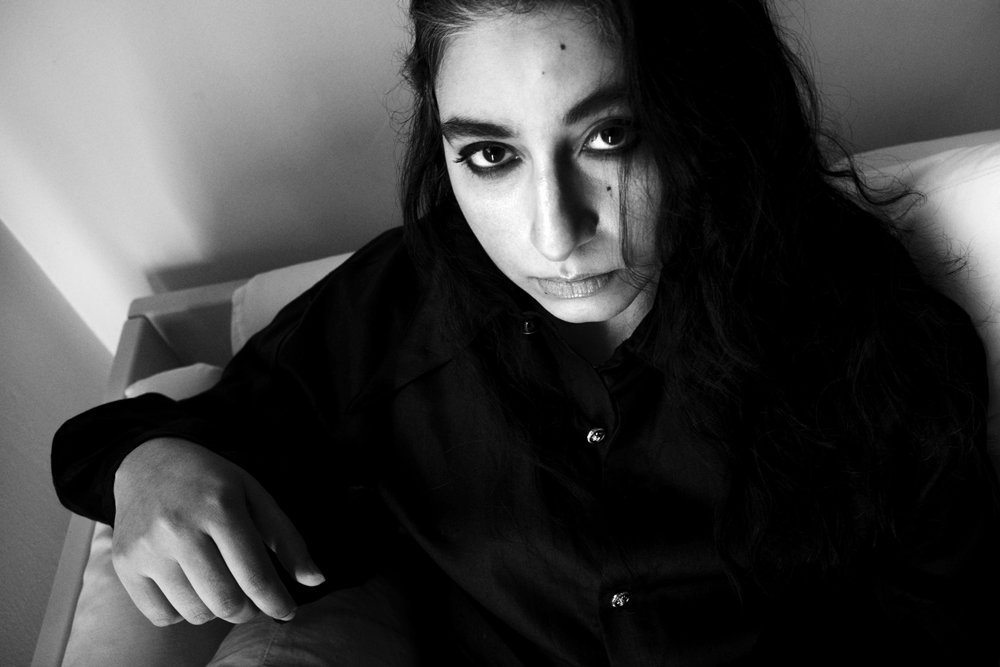Global Beat: Arooj Aftab

Photo: Shreya Dev Dube
***
Arooj Aftab knows what you’ve heard about her, and she’s here to change the story.
The Pakistan-raised, New York-based singer/composer broke through in 2021 with her third album, Vulture Prince. It was a quietly stunning collection of ghazals—or Sufi mystic poems— that took flight thanks to Aftab’s haunting, otherworldly singing in her native Urdu and sparse, harp-led compositions. Put plainly, it was stop-in-your-tracks beautiful, and it earned Aftab a Grammy and countless spots on year-end best-of lists, including President Barack Obama’s. It was music that took you on a journey, even if you didn’t speak Aftab’s language.
Vulture Prince also painted Aftab into a corner—as some wise interpreter of ancient, mystic poetry. But, as any conversation with her will reveal within the first minute, Aftab is very much a modern person experiencing the ups and downs of 2024 with the rest of us.
“I wanted to get out of this sacred, meditative, sage-like feeling and just be more genuine to who I am,” she says, calling after a soundcheck in Sydney, Australia, before her tour opener Down Under. “I got tired of hearing that I was reimagining. Re-… re-… re-. I did it, and it was time to move on.”
Now, three years after Vulture Prince shined a spotlight on Aftab, her fourth solo album, Night Reign, is the sound of her finding herself— in the dark. It’s an evolution in every way. This time around, she’s not only working in some classical Urdu poetry, but also her own English lyrics, contemporary jazz standards and modern Pakistani verses. And the resulting nine-song set is mysterious, shadowy, desirous and playful, chewing up any notion of genre into something new— night music.
Aftab largely grew up in Lahore, Pakistan, exposed from an early age to both classic Pakistani and Western music. The 1987 album Making Music, featuring collaborations between tabla player Zakir Hussain and guitarist John McLaughlin, “was one of my epic records,” she says.
“It was beautiful, period, without any analysis necessary,” she adds. “So, in my mind, these different musical worlds were already together.”
The singer initially moved to the United States to study music at the Berklee College of Music in 2005, and by 2010, she had scored a day job as an audio engineer in New York while she continued to compose her own music. Her 2014 debut album, Bird Under Water, caused a minor stir, but 2021’s Vulture Prince changed her world. Aftab played over 200 shows supporting the album; she felt her entire existence shifting.
“My life transitioned to be primarily at night. Shows were at night, and I explored new cities at night. I was going to parties at night. It felt like everyone suddenly wanted a piece of me,” she says, adding that she also experienced waves of grief after the sun set, especially during her quieter evenings off tour. Aftab’s younger brother died as she recorded Vulture Prince, but in the album’s aftermath came time and space to process the loss and welcome some calm.
“Night,” she says, “became a thing for me. The concept began to develop—an album where the protagonist isn’t me. It’s the night itself.”
Aftab and her friends Shahzad Ismaily and Vijay Iyer recorded and released Love in Exile in 2023—a gorgeous, improvised space-jazz album—as she was slowly building her new solo record. Ready to cast off her “sage-like” tag, Aftab expanded her influences. She adapted an Urdu poem she found on Instagram by her friend, Pakistani actress Yasra Rizvi, into a deep, echoing ballad calling for a lover lost in a storm. She wrote the dreamy, lilting “Whiskey,” which contains heart-beating lyrics like, “I think I’m ready to give into your beauty and let you fall in love with me/ We’ll fade into the night/ I’m drunk and you’re insane.” She took swooning 1940s jazz standard “Autumn Leaves”—played by Miles Davis, Nat King Cole and many more—and drenched it in shadows.
She didn’t entirely leave the centuries-old mysticism behind. Aftab weaved in poetry by Mah Laqa Bai Chanda—an Indian royal, writer and warrior born in 1768, whose work has never been set to music—and composed both “Na Gul” and “Saaqi.”
“These old poems are amazing— that’s the fucking source,” she says. “She writes about the night, and she was this badass woman, so I felt that she did fit into the hang.”
Aftab drew together a stellar group of musicians to bring Night Reign to life. Guitarist Kaki King adds her virtuosic finger-picking across the album, and longtime collaborator and harpist Maeve Gilchrist helps the songs gently float along like a paper lantern. On “Bolo Na,” Shahzad Ismaily adds a perfectly unsettling noir-ish bassline while Moor Mother offers some gripping spoken word. And on “Last Night Reprise”—a tune Aftab wrote for Vulture Prince and revisits here—those Wurlitzer organ chords you hear are courtesy of none other than Elvis Costello, who became a fan of Aftab’s music during the pandemic. Costello dropped by her Manhattan studio to hang out and left with a credit on the set.
The finished Night Reign is every bit as devastatingly gorgeous and arresting as Vulture Prince, but it’s more varied, more adventurous, more unpredictable. Aftab knows she had to create one to evolve and create the other. And while Night Reign presents a more well-rounded and authentic look at who Arooj Aftab is today, she says it’s her live show that’s most revealing.
“Onstage, people see my music isn’t some sacred, ancient thing,” she says. “We’re rocking out, making jokes, taking solos, drinking wine and throwing flowers. And I see the faces in the audience changing—people who came in with sorrows and heaviness given permission to have fun. It doesn’t feel sacred and self-important. We’re anti all that.”




















